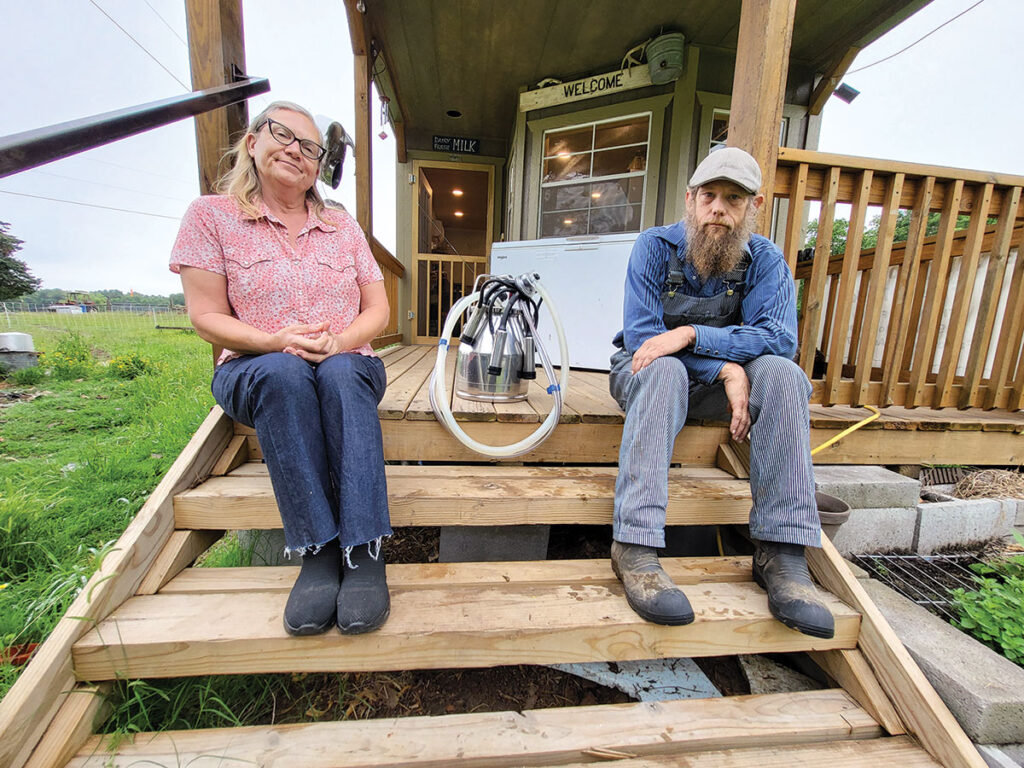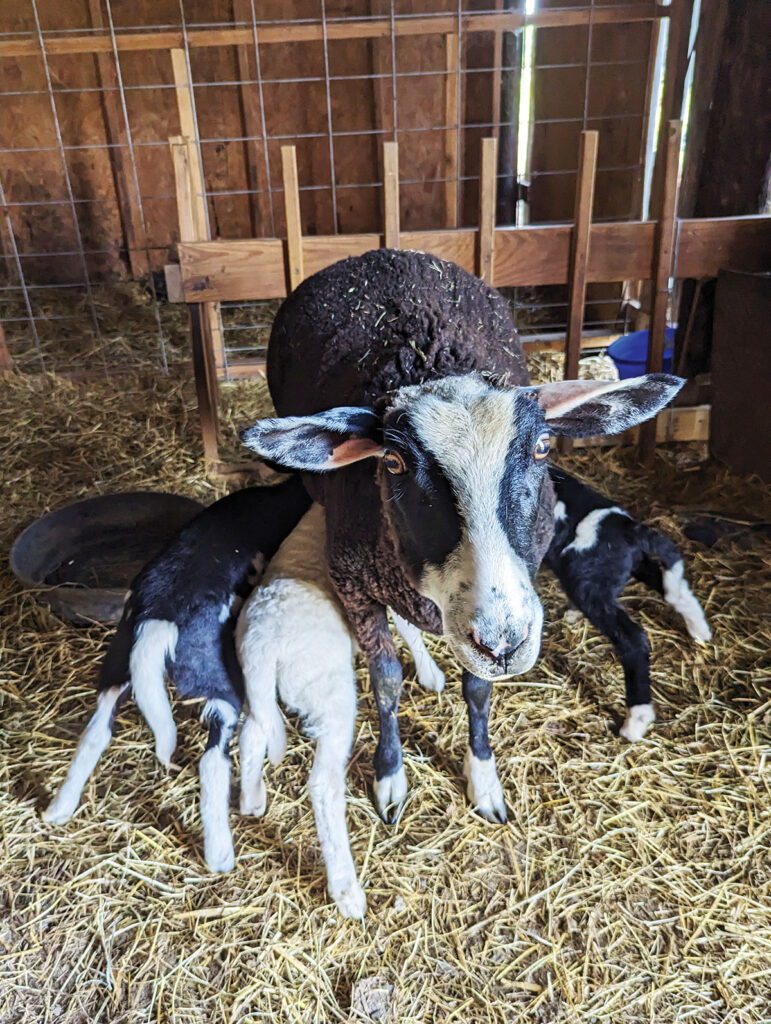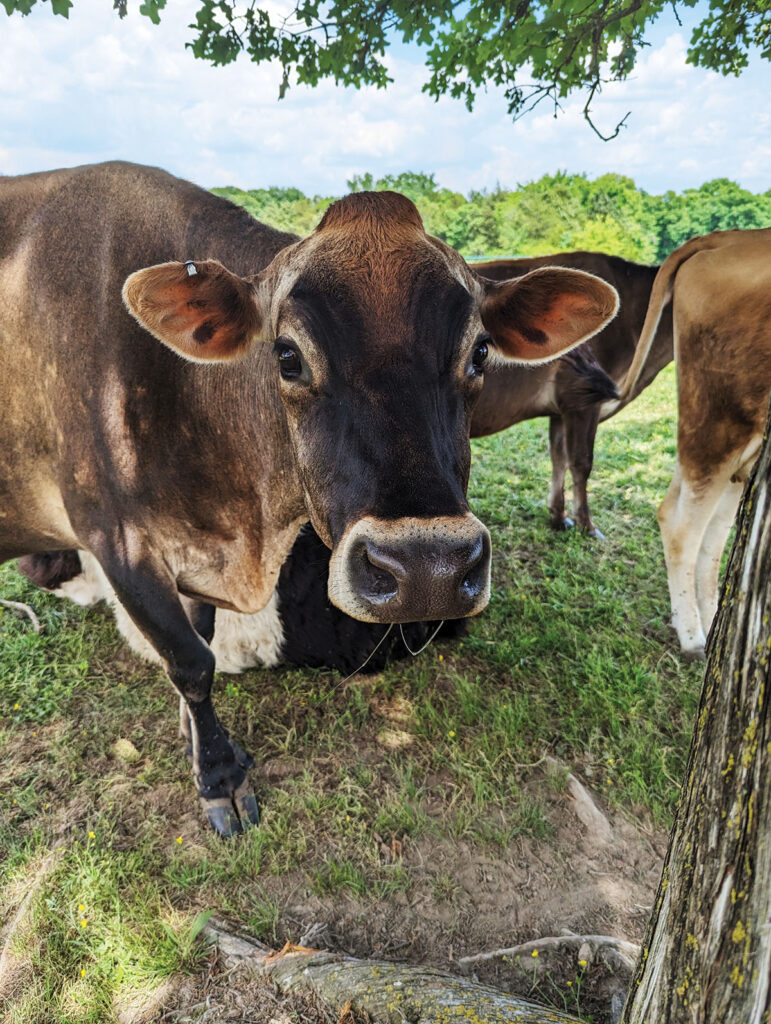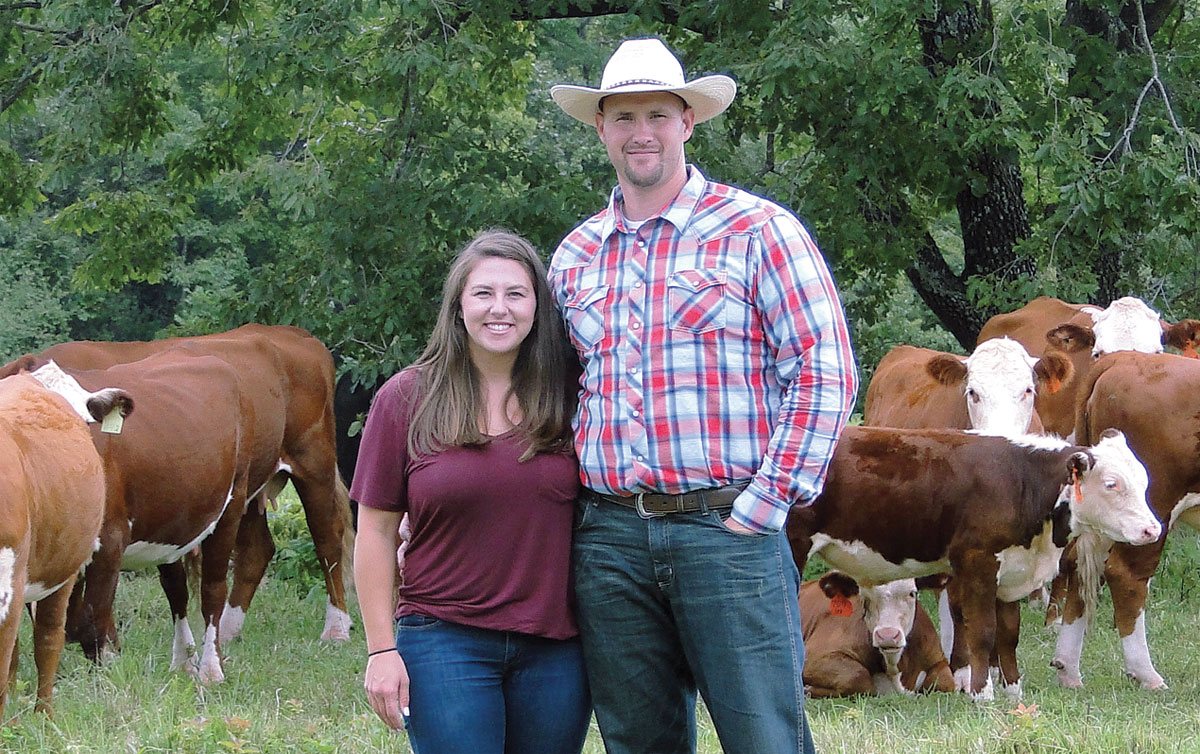
Miller’s Farm offers raw, fresh-from-the-farm cow and sheep milk
FAYETTEVILLE, ARK. – In 1961, Liz Miller’s parents bought the land now known as Miller’s Farm. She was raised there and thought she would go into agricultural journalism as a career. As life tends to do, it took a turn, and she realized that wasn’t the career for her.
Liz and Nathan Miller married in 2010. In 2011, the newlyweds moved in with her father, knowing they would be taking care of him in his senior years. The couple took over running the farm when he died in 2017.
“We’ve been here ever since,” Liz said.
Nathan added, “he made me promise (to maintain the farm).”
The couple renamed the farm from Waltzing Rock Farm to Miller’s Farm and have developed it to include 15 meat sheep (mostly Katahdin mixes and a Finnsheep ram), four dairy sheep with at least two rare sets of recently-born triplets, and two more that are likely pregnant (mostly East Friesian/Lacaune mixes), about 60 chickens of varying breeds, 13 Jersey cows (mostly calves with several cows that are milking), two Mustangs, two donkeys, a disabled black Angus cow, a Belted Galloway bull that services the cows, and a variety of household pets.
In addition to the farm, Nathan works in construction, and Liz homeschools their two daughters, who also help as much as possible with age-appropriate chores on the farm.
The couple got their first dairy sheep from a farmer in Searcy, which is relatively close given the lack of dairy sheep farms in the area. The dairy sheep and their milk are unique.
“It’s just so good,” Nathan said of the milk from the sheep flock. “It’s pretty special, but it’s hard to describe. It’s almost like melted ice cream but without the sugar.”

“It’s better than goat’s milk or cow’s milk,” Liz said. “And the health benefits are incredible.”
Their growing customer base for raw milk knows the Millers for their sheep milk and their high-quality cow’s milk.
Because cows milk 10 to 12 months out of the year and sheep only lactate about five or six months the sheep’s milk is rarer than the cows’ milk. The total amount milked also makes the sheep milk rare; the cows produce about 10 to 12 gallons a day, whereas they get about half a gallon daily from the sheep.
Customers return their used milk jars at the end of the Miller’s driveway, and Liz sanitizes them to be used again. They have a commercial three-bay sink with a 30-gallon bulk filler tank, where they wash and sanitize two to four loads of jars daily.
The customers, by law, pick up the raw milk at the farm. Liz said they have a growing number of requests for dairy products such as cream, butter, or milk, but it is not allowed under Arkansas raw milk laws. She can, however, make and sell soap.
“There needs to be something done so we can do this and sell it,” Nathan said of making additional dairy products.
While they recognize having a certified organic and non-GMO farm might increase their popularity, they don’t follow the trend. All their animals are raised in the pasture and fed a mix of hay, alfalfa, and a Purina feed mix purchased from a local co-op. The chickens are fed scratch and laying pellets.
“It would ultimately be worse for the environment if we did try to be non-GMO because everything would have to be shipped from across the country to get here,” Nathan said. “That’s what is really tearing up the environment, the fossil fuels.”
It would also make the prices so high that it would make the milk, produce and eggs out of their customer’s reach.
“It would just cost too much,” Liz added.

Nathan also has strong opinions on artificial intelligence and how its development could revolutionize the farming industry.
“It’s the future,” he said. “We would be able to use targeted herbicide and pesticides instead of spraying it everywhere.”
The Millers are growing their customer base; they have about 40 right now. They also make sure to donate and support the community when they can. Specifically, they donate a quarter for every gallon to the local Meals on Wheels program, which the local senior center runs.
“They were so good to my dad when he was still alive,” Liz said of the senior center.
As they grow, they know they will have customers to serve.
“We already have a waiting list for customers,” they agreed.
Another part of their growth is to add milking training services for young local homesteaders.
“I love training cows,” Nathan said. “We use a vacuum bucket milker on the cows (and a similar concept on the sheep).”
Liz added proudly, “They just stand there of their own free will. He doesn’t have to confine them.”
The family also loves to share about their farm on social media, including Facebook and Tik Tok.







